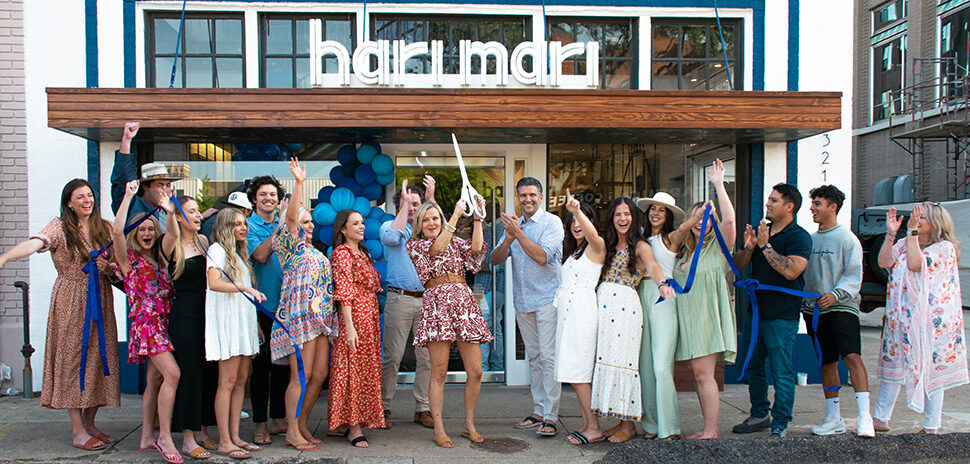Owning a car has given Jessica Wu a freedom she’d never had before.
When the native of Hainan, China first arrived in the U.S., she had no personal income, no driver’s license, nor friends to call her own. Her now ex-husband regulated her every move.
“It was like he controlled everything, so I didn’t even speak English,” Wu said.
In 2014, she separated from him and sought help at Genesis Women’s Shelter in Dallas, which offers women a way out of domestic violence situations.
It was through the shelter that she first heard about On the Road Lending. The Dallas-based nonprofit enables people with low to moderate incomes to purchase cars through character-based loans and offers one-on-one financial coaching to get them back on track.
“We’re the only organization like this in the United States.”
Michelle Corson
“We’re the only organization like this in the United States,”said On the Road Founder and CEO Michelle Corson.
Corson said there’s a misconception that lower income people can’t afford a car, but On the Road has found a person only needs about $1,500 in monthly income.
“I believe having reliable transportation is a critically important thing for people to get ahead,” Corson said. “Housing is important too, but this is connecting to everything else you need in life.”
For Wu, getting in the driver’s seat of her own 2013 Toyota Corolla changed her life.
She had more flexibility on job choices and no longer had to wait with her son in the cold or Texas heat for a bus to take them wherever they needed to be.
“You can go to grocery [store] whenever you want. You don’t need to check the bus schedule on your phone every time you think about ‘Oh, I have to get out the door to be at the bus station,’” Wu said.
Giving people back time and freedom is what Corson, a former president of The Real Estate Council in Dallas, hoped to do with On the Road.
“I believe having reliable transportation is a critically important thing for people to get ahead.”
Michelle Corson
“Other great things that clients are getting besides better jobs is better health,” Corson said. “They can get better food more easily.”
Since she started the nonprofit in 2014, it’s made 165 car loans statewide through Champion Impact Capital, a social purpose private equity fund she also created.
“I thought, if we can invest in solutions to problems instead of putting money out there that goes into a black hole and doesn’t get recycled, we could really make those dollars go a lot further to solving problems,” said Corson of the equity fund.
With recent interest from nonprofit partners outside of Texas and a collaboration with Toyota, On the Road is poised for growth beyond the Lone Star State in the next year.
PREPPING FOR EXPANSION
“We’re really ramping up right now because we’ve got some capital in and the demand is high,” Corson said.
But before On the Road makes the “quantum leap,” she wants to make sure the nonprofit has a solid foundation and services are sound.
“What we are trying to do is get to some scale here and prove up that it doesn’t breakdown when we help 800 families instead of 165,” Corson said.
She said most of the nonprofit’s work is done remotely allowing it to do work anywhere. Since its clients are transportation challenged, it won’t typically ask them to come to the physical office. Instead, On the Road employees use mostly email or phone to correspond with clients for financial coaching or vehicle logistics.
For the required financial education, Corson said they refer clients to existing local programs rather than re-creating their own. In the future as the nonprofit moves into other markets, she’d like to have an online course to make learning more standardized and accessible.
UNITED WITH NEW PARTNERS
Year Up, a national nonprofit focused on 18- to 24-year-olds, believes On the Road aligns well with its workforce development programming and would make a great partner not only in aiding current students, but its large alumni base.
“You got these young adults who now have skills that are marketable, earning a decent wage, but transportation is a barrier,” said Jim Thie, chief information officer for Year Up.
According to a report from The Brookings Institution in 2011, about one-quarter of low- to middle-skill metropolitan jobs in the U.S. are accessible by public transit within 90 minutes, while one-third of jobs in high skill industries are.
Working with On the Road, will help lower that transportation obstacle, Thie said.
He said several of its students have shown interest in On the Road’s services, but haven’t received a loan yet.
“I think a lot of the people that are financially challenged either say, ‘I can never afford a car or I’m going to have to buy something that is really old and unreliable and take out a huge loan,’” Thie said. “This almost feels like one of those things that’s too good to be true. I believe once we get the first one, two, three students over the goal line … The others will follow suit very quickly.”
United Way of Greater Cincinnati has also asked On the Road about moving into Ohio, Corson said.
“They want to create a more joyful, mobile society and that’s what we want, too.”
Michelle Corson
With each new market, Corson said the nonprofit will rely on its on-the-ground partners who are familiar with the community for client referrals.
In North Texas alone, On the Road partners with about 60 nonprofits from the Salvation Army and CitySquare to Family Place and Genesis Women’s Shelter.
It has long worked closely with Toyota of Richardson as a source for cars, but with the automaker’s recent North American headquarters move to Plano, the relationship is deepening.
Toyota already has given more than $1 million in grants to On the Road and is helping it with a technology overhaul that will automate some manual processes. It’s also expressed interest in bringing the nonprofit to other markets where it has production facilities such as Tupelo, Mississippi.
“They want to create a more joyful, mobile society and that’s what we want, too,” Corson said.
![]()
Get on the list.
Sign up to keep your eye on what’s new and next in Dallas-Fort Worth, every day.
And, you’ll be the first to get the digital edition of our new Dallas Innovates magazine:
The annual edition publishes in January.
![]()






























